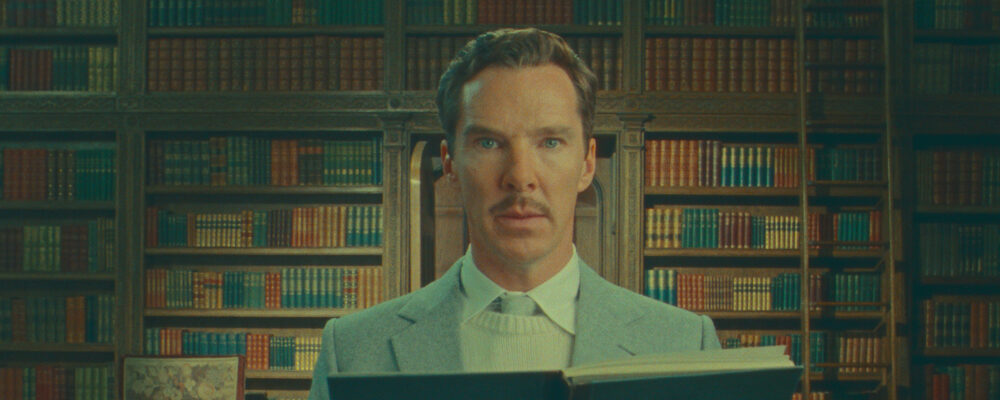‘The Wonderful Story of Henry Sugar’: Benedict Cumberbatch Finds Purpose in Wes Anderson’s Delightful Roald Dahl Adaptation
Sandra Miska
Almost 14 years after the release of “The Fantastic Mr. Fox,” filmmaker Wes Anderson has once again brought to life the work of Roald Dahl with “The Wonderful Story of Henry Sugar,” the first of Anderson’s four short films based Dahl’s work to be released on Netflix. Based on Dahl’s short story of the same name, one of the author’s more mature works, this film stars Benedict Cumberbatch as the title character, a selfish playboy who undergoes a transformation after reading an old book in his father’s library.
Anderson’s “The Wonderful Story of Henry Sugar” is a faithful adaptation of Dahl’s story, to say the least, as it delivers Dahl’s text almost completely verbatim. Most of the words are narrated by Dahl himself, played here by Ralph Fiennes. Dahl frames the story of Henry Sugar, who frames the story of Imdad Khan (Ben Kingsley), a man who could see without his eyes. There’s a lot going on in its 37 minutes running time, but “The Wonderful Story of Henry Sugar” moves at a swift pace, with diorama-like sets that quickly transports the story where it needs to be. Also giving the film a theatrical feel is the fact that almost all of the actors (they are all men here) play dual roles. For example, Fiennes pops up towards the end of the film as a policeman.
As for Henry Sugar, he is introduced circa 1959 as a 41-year-old man who lives a life of leisure off of his father’s wealth. It is in his dad’s library that he finds himself drawn to a thin book, a report from Dr. Chatterjee (Dev Patel), a doctor who first encountered Imdad Khan in 1935, at a hospital in India. Imdad has the doctor glue his eyes shut and bandage his face so he can perform completely blinded in front of a local crowd, threading a needle and performing other tricks. Having a doctor assist him gives him some legitimacy, but Imdad is not just some sideshow act, as his ability comes from years of practice and discipline inspired by a yogi (Richard Ayoade) he met as a young man.
The second section of the film focuses on Henry and how Imdad’s story inspires him to teach himself how to read cards by looking at the backs of them, thus making him a fortune at the casinos. Although his motives are questionable, his quest to achieve this goal finally gives him the motivation he has lacked in life up until this point. Once his dream comes true, he goes through another transformation that is surprisingly sweet to watch unfold.
“The Wonderful Story of Henry Sugar” is fantastic for the way it explores the power of the mind and what one can achieve with enough practice and discipline, and Anderson deserves praise for taking a new approach to adaptation. However, the “show, don’t tell” rule in filmmaking exists for a reason, and having non-stop dialogue leaves for almost no room for the film to breathe. Moments of reflection are pretty much non-existent, and this is a wonderfully delightful story that deserves them.
“The Wonderful Story of Henry Sugar” begins streaming Sept. 24 on Netflix.

